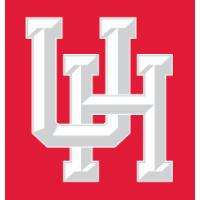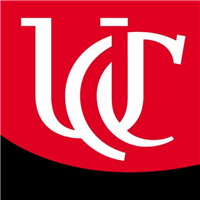What do they do?
Dispense drugs prescribed by physicians and other health practitioners and provide information to patients about medications and their use. May advise physicians and other health practitioners on the selection, dosage, interactions, and side effects of medications.
Also known as:
Clinical Pharmacist, Hospital Pharmacist, Informatics Pharmacist, Pharm D (Pharmacy Doctor), Pharmacist in Charge (PIC), Pharmacy Coordinator, Pharmacy Informaticist, Pharmacy Services Clinical Coordinator, Registered Pharmacist, Retail Pharmacist
-
-2.4%
Change
Ranks #61 in job growth rate450Job Openings
Ranks #11 in net job growth
-
University of Houston
Houston, TX
-
University of Cincinnati-Main Campus
Cincinnati, OH
-
University of Utah
Salt Lake City, UT
-
Long Island University
Brookville, NY
-
University of Kansas
Lawrence, KS
Looking for colleges that offer a specific major? Use the College Match Tool to find your best-matched schools and discover your estimated Net Price!
- Doctorate or Professional Degree (66%)
- Master's degree (6%)
- Bachelor's degree (26%)
- Associate's degree (1%)
- Some college, no degree (1%)
- High school diploma equivalent (<1%)
- Less than high school diploma (<1%)
People in this career often have these skills:
- Reading Comprehension - Understanding written sentences and paragraphs in work-related documents.
- Active Listening - Giving full attention to what other people are saying, taking time to understand the points being made, asking questions as appropriate, and not interrupting at inappropriate times.
- Speaking - Talking to others to convey information effectively.
- Writing - Communicating effectively in writing as appropriate for the needs of the audience.
- Critical Thinking - Using logic and reasoning to identify the strengths and weaknesses of alternative solutions, conclusions, or approaches to problems.
- Monitoring - Monitoring/Assessing performance of yourself, other individuals, or organizations to make improvements or take corrective action.
- Judgment and Decision Making - Considering the relative costs and benefits of potential actions to choose the most appropriate one.
- Active Learning - Understanding the implications of new information for both current and future problem-solving and decision-making.
- Social Perceptiveness - Being aware of others' reactions and understanding why they react as they do.
- Service Orientation - Actively looking for ways to help people.
- Complex Problem Solving - Identifying complex problems and reviewing related information to develop and evaluate options and implement solutions.
- Time Management - Managing one's own time and the time of others.
- Science - Using scientific rules and methods to solve problems.
- Coordination - Adjusting actions in relation to others' actions.
- Instructing - Teaching others how to do something.
- Management of Personnel Resources - Motivating, developing, and directing people as they work, identifying the best people for the job.
People in this career often know a lot about:
- Medicine and Dentistry - Knowledge of the information and techniques needed to diagnose and treat human injuries, diseases, and deformities. This includes symptoms, treatment alternatives, drug properties and interactions, and preventive health-care measures.
- Mathematics - Knowledge of arithmetic, algebra, geometry, calculus, statistics, and their applications.
- Customer and Personal Service - Knowledge of principles and processes for providing customer and personal services. This includes customer needs assessment, meeting quality standards for services, and evaluation of customer satisfaction.
- English Language - Knowledge of the structure and content of the English language including the meaning and spelling of words, rules of composition, and grammar.
- Chemistry - Knowledge of the chemical composition, structure, and properties of substances and of the chemical processes and transformations that they undergo. This includes uses of chemicals and their interactions, danger signs, production techniques, and disposal methods.
- Biology - Knowledge of plant and animal organisms, their tissues, cells, functions, interdependencies, and interactions with each other and the environment.
- Psychology - Knowledge of human behavior and performance; individual differences in ability, personality, and interests; learning and motivation; psychological research methods; and the assessment and treatment of behavioral and affective disorders.
- Computers and Electronics - Knowledge of circuit boards, processors, chips, electronic equipment, and computer hardware and software, including applications and programming.
- Education and Training - Knowledge of principles and methods for curriculum and training design, teaching and instruction for individuals and groups, and the measurement of training effects.
People in this career often have talent in:
- Oral Expression - The ability to communicate information and ideas in speaking so others will understand.
- Oral Comprehension - The ability to listen to and understand information and ideas presented through spoken words and sentences.
- Written Comprehension - The ability to read and understand information and ideas presented in writing.
- Problem Sensitivity - The ability to tell when something is wrong or is likely to go wrong. It does not involve solving the problem, only recognizing that there is a problem.
- Near Vision - The ability to see details at close range (within a few feet of the observer).
- Written Expression - The ability to communicate information and ideas in writing so others will understand.
- Deductive Reasoning - The ability to apply general rules to specific problems to produce answers that make sense.
- Inductive Reasoning - The ability to combine pieces of information to form general rules or conclusions (includes finding a relationship among seemingly unrelated events).
- Category Flexibility - The ability to generate or use different sets of rules for combining or grouping things in different ways.
- Information Ordering - The ability to arrange things or actions in a certain order or pattern according to a specific rule or set of rules (e.g., patterns of numbers, letters, words, pictures, mathematical operations).
- Speech Recognition - The ability to identify and understand the speech of another person.
- Speech Clarity - The ability to speak clearly so others can understand you.
People in this career often do these activities:
- Verify accuracy of patient information.
- Communicate detailed medical information to patients or family members.
- Advise patients on effects of health conditions or treatments.
- Maintain medical facility records.
- Collaborate with healthcare professionals to plan or provide treatment.
- Advise medical personnel regarding healthcare issues.
- Determine protocols for medical procedures.
- Maintain inventory of medical supplies or equipment.
- Order medical supplies or equipment.
- Prepare medications or medical solutions.
- Recommend types of assistive devices.
- Merchandise healthcare products or services.
- Manage healthcare operations.
- Train medical providers.
- Instruct patients in the use of assistive equipment.
- Treat chronic diseases or disorders.
- Refer patients to other healthcare practitioners or health resources.
- Calculate numerical data for medical activities.
- Present medical research reports.
This page includes data from:

 Occupation statistics: USDOL U.S. Bureau of Labor Statistics Occupational Employment Statistics
Occupation statistics: USDOL U.S. Bureau of Labor Statistics Occupational Employment Statistics
 Videos: CareerOneStop, USDOL/ETA and the Minnesota Department of Employment & Economic Development
Videos: CareerOneStop, USDOL/ETA and the Minnesota Department of Employment & Economic Development









